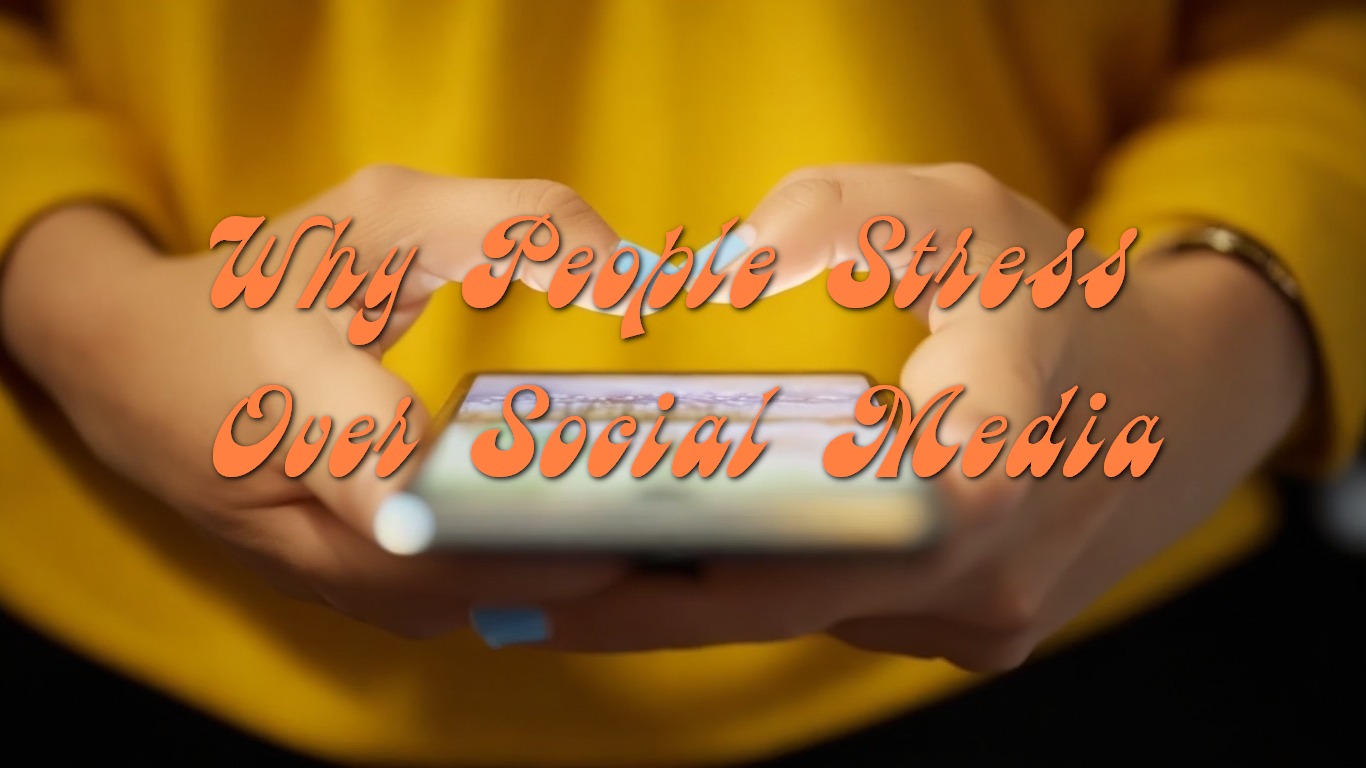In the age of digital connectivity, social media platforms have become an integral part of our lives. From Facebook and Twitter to Instagram and TikTok, these platforms offer a virtual stage for individuals to share their lives, thoughts, and experiences with the world. While social media undoubtedly brings numerous benefits, such as facilitating communication and networking, it also brings along a significant source of stress for many. In this article, we will explore the reasons why people stress over social media and its impact on our mental well-being.
Fear of Missing Out (FOMO)

One of the most prominent reasons people stress over social media is the fear of missing out, commonly referred to as FOMO. Social media platforms are designed to showcase the best aspects of people’s lives, including their vacations, achievements, and happy moments. When scrolling through a seemingly endless stream of carefully curated posts, it’s easy to feel left out or inadequate, leading to anxiety and stress. People often compare their own lives to the highlight reels of others, which can result in feelings of unworthiness and sadness. So, next time you feel a strong desire to get more TikTok views organically, recollect that it can be just a fear of missing out but not your true desire.
Social Comparison
Social media encourages constant comparison with others, which can be detrimental to mental health. People tend to measure their success, appearance, and popularity against their peers on these platforms. This relentless social comparison can lead to feelings of inadequacy and low self-esteem. For instance, seeing someone with a seemingly perfect body or an enviable career can trigger negative self-perceptions and stress.
Cyberbullying and Online Harassment
The anonymity provided by social media can embolden individuals to engage in cyberbullying and online harassment. When someone becomes the target of hurtful comments, threats, or false rumors, it can lead to immense stress and emotional trauma. The constant fear of being harassed online can make people reluctant to share their opinions or express themselves openly on social media, further isolating them from the digital community. Thus, you can be eager to get tips to boost TikTok followers or increase your audience on any other platform but still feel fear of being harassed.
Addiction and Overconsumption
Social media platforms are designed to be addictive. The endless scrolling, notifications, and likes trigger dopamine releases in the brain, reinforcing the behavior of checking social media constantly. However, this addiction can lead to increased stress as individuals find themselves spending excessive amounts of time on these platforms, neglecting other important aspects of their lives, such as work, relationships, and self-care.
Negative Feedback and Trolling

Receiving negative feedback or encountering trolls on social media can be disheartening and stress-inducing. Whether it’s criticism of one’s appearance, opinions, or choices, such negative interactions can lead to self-doubt and emotional distress. The public nature of these comments can also amplify the stress, as they are visible to a wide audience.
Unrealistic Beauty Standards
Social media often perpetuates unrealistic beauty standards through filters, Photoshop, and carefully posed photos. Many individuals feel pressured to conform to these standards, leading to body image issues and stress. The constant exposure to flawless images can create an unrealistic perception of beauty, causing people to feel dissatisfied with their own appearance.
Privacy Concerns
Privacy is a growing concern on social media platforms. People worry about their personal information being misused, leading to identity theft or data breaches. This fear of privacy invasion can add another layer of stress to the social media experience, causing individuals to question their online presence and interactions.
In conclusion, while social media offers numerous benefits, it also comes with a dark side that can contribute to stress and anxiety. The fear of missing out, social comparison, cyberbullying, addiction, negative feedback, unrealistic beauty standards, and privacy concerns all play a role in why people stress over social media. It’s essential for individuals to be mindful of their social media usage, set boundaries, and prioritize their mental well-being to mitigate the negative effects of these platforms. Balancing the benefits of digital connectivity with the preservation of mental health is crucial in the modern era of social media.
